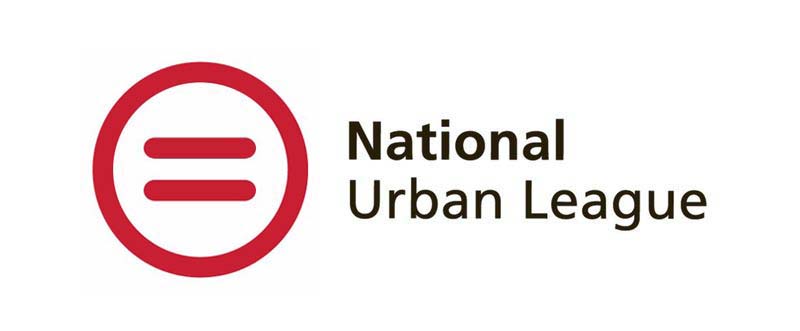If your post-college or career plans include graduate school or research, there’s a good chance you’ll need a few recommendation letters from your professors. But recommendation letters for graduate school or fellowship programs are different from the ones a high school teacher writes for your college applications. So, the way you ask for a letter of recommendation is a bit different, too.
In this guide, we’ll explain how to ask for a letter of recommendation from a professor as professionally as possible.
What Is a Letter of Recommendation?
A letter of recommendation is exactly what it sounds like. It’s a letter someone writes on your behalf specifically recommending you for something. That “something” could be graduate school, a research fellowship, an internship, or even a job.
What makes recommendation letters unique is that they speak to the specifics about you and your abilities as they relate to the position or program. So, for example, if you’re applying to an MBA program, the recommendation letter will discuss your academic achievements and why you’ll be an excellent addition to the program.
But letters of recommendation are also confidential. They’re usually written and delivered directly to the admissions or hiring committee as part of the candidate review process, so you’ll probably never know what the letter writer said about you.
What Is a Reference Letter?
A reference letter is similar to a recommendation letter but with a few differences.
First, though a reference letter also talks about your skills and abilities, it’s more general. The letter writer may talk about your achievements and accomplishments, but they won’t necessarily explain, for example, how you’ll contribute to that particular school or company.
Second, reference letters (and references in general) are usually provided after you’ve applied for a job, not before. Most companies don’t ask for them unless they’ve made you a verbal offer. And, because they come after the offer, reference letters are almost never a part of a school application.
Who to Ask for a Letter of Recommendation
Before you decide who to ask for a letter of recommendation, consider what you need the letter for. Are you applying to an MBA or MFA program? Medical or law school? Will you use the letter for an internship, research opportunity, or a job?
>>MORE: Not sure what path is right for you? Take our quiz to find out what you should do with your life!
“A student would be well-advised to consult with a career counselor and/or advisor to brainstorm and discuss who they should ask to write on their behalf,” says Mark Peltz, department head of the center for careers, life, and service at Grinnell College. In general, the person writing the letter should know you well and have direct experience with your performance.
“A professor with whom you’ve had multiple classes or worked closely with on a research or creative project are likely those in the best position to speak to your strengths and qualifications,” says Peltz. “Similarly, others who have observed or supervised your work can make good reference writers.”
>>RELATED: How to Get an Internship Without Work Experience
How Many People Should I Ask?
Though you’ll likely need more than one recommendation letter, asking everyone you know to write a letter of recommendation probably won’t work in your favor. For starters, the letter writer should be familiar with your academic track record. And whoever writes your letter needs to be able to give it the time and attention it deserves. “Writing an impactful letter of recommendation takes time, so be thoughtful about who you ask and be courteous of their time,” says Peltz.
So, if you need two recommendation letters, identify the top two people you’d like to ask. Then select two to three alternates in case your top two choices aren’t available. But don’t ask your entire list to write letters for you “just in case.”

You Are Extraordinary
Discover the causes of imposter syndrome and how to overcome them in this free course from Ashurst UK.
Avg. Time: 3-4 hours
Skills you’ll build: Interview prep, social identity, growth mindset, self-awarness
If nothing else, part of asking for a letter of recommendation means you keep track of who’s submitted them. And no matter how good your tracking system is, more letter writers means more for you to track — and possibly lose track of.
When Is the Best Time to Ask for a Letter of Recommendation?
You can request a letter of recommendation any time. However, with school or internship application deadlines looming, fall is the most popular time to ask for one. Peltz advises students to plan ahead and ask their top choices at least six to eight weeks ahead of the due date.
“Professors are commonly writing multiple letters of recommendation for current and former students.” Giving the professor and yourself that long gives you a large enough buffer to follow up with reminders if you need to.
How to Ask for a Letter of Recommendation From a Professor
Once you’ve identified a list of two to four professors you’d like to approach, here’s how to ask for a recommendation letter.
Schedule a Meeting
Peltz advises students to request a meeting via email. “This provides both parties the opportunity to have a conversation about the student’s goals, where they are submitting applications, and other relevant matters.”
If an in-person meeting is impossible, then a phone call will do. But Peltz says you should try for some kind of face-to-face interaction whenever possible. “It gives the student an opportunity to pick up on any nonverbal cues. If the professor hedges and doesn’t respond favorably to the request, this is useful information and you may want to consider identifying an alternate reference.”
>>MORE: How to End an Email Professionally (With Examples)
Explain Why You’re Asking Them
A crucial component of your ask is explaining why you’re selecting this individual to write a recommendation letter for you. It may be obvious to you why you’re asking this person but you can’t assume the professor has the same understanding. Even if the reason is evident to both parties, as Peltz notes, a detailed explanation makes it clear that you’ve “given this some serious thought and there is substantive reason and motivation behind the request.”
In other words, be precise about why you’re asking this individual, so it’s clear you aren’t asking anyone and everyone.
Give Them an Out
Not every professor may have the time to write a letter of recommendation for you. And sometimes, professors have reasons for not writing recommendation letters. To avoid any awkward situations and keep your relationship intact, give the professor the space to decline your request gracefully.
Make Things Easy
Once someone agrees to write a letter of recommendation for you, make their task easier. Provide the letter writer with your current resume or curriculum vitae or put together a highlight sheet with the hard and soft skills you’d like them to mention, along with your short and long-term career goals. Having something to reference while the professor writes your recommendation letter will help them create a document that’s specific to you.
And if there are specific criteria that must be included in the letter, pass that information along. “Failing to do so can have a major impact on the overall quality of your application,” warns Peltz.

Resume Writing Masterclass
Learn how to write a resume that gets recruiters interested. In this free class, you'll discover the tips and tricks that will help you craft the perfect resume.
Avg. Time: 5-6 hours
Skills you’ll build: Resume writing, crafting a professional summary, professional branding, using keywords
Asking for a Letter of Recommendation via Email (Sample)
Below are two sample emails you can send asking for a letter of recommendation. No matter which email you send, start with a clear subject line (Request for Letter of Recommendation is a good choice). Introduce yourself or refresh their mind — especially if you haven’t been in their class recently. Then briefly but clearly explain what you’re asking for, why you selected them, and give the professor a way to gracefully decline your request.
Here’s what that looks like:
Requesting an in-person meeting:
When an in-person meeting is not an option:
The Right Approach for the Right Results
Asking for a letter of recommendation with this approach can help ease your anxiety and increase the odds your professor says “yes.” And with that yes, you’ll be one step closer to achieving your professional goals.
Not sure what comes next for you? Enroll in a free Forage job simulation and explore careers and jobs at top companies while building the real-world skills you’ll need to land your next job.
Frequently Asked Questions
Yes. While it’s better to have an in-person interaction, that’s not always possible. If email is the best or only way to ask, it’s OK!
Absolutely. Just make sure that person is familiar with your academic abilities and personalize your request. If they agree, make sure to give them a “brag sheet” to help them draft the letter.
Don’t ask at the last minute! Try to ask at least six to eight weeks in advance. And don’t wait to give them your brag sheet or the relevant information they’ll need to write the letter. Also, don’t make it sound like you’re asking all your professors or that you’ll be disappointed if they say no.
It shouldn’t be, but it’s normal to feel that way. Professors are asked for rec letters all the time, even from students they don’t know that well or haven’t taught in a while. As long as you’re polite and explain why you’re asking them to write the letter, you should feel confident and comfortable asking.
Most recommendation letter writers will submit their letter on time. And if yours are for, say, graduate school, the application system likely has a status indicator to let you know if the letters are submitted. But, if you need them soon and either aren’t sure if they’ve been submitted or know they haven’t been finished, it’s OK to reach out with a gentle reminder two to three weeks before the due date.
Once the letter of recommendation is submitted, drop the professor a quick email or speak to them in person and thank them again for writing the letter. Then, once you know your status, follow up again with the professor and let them know the outcome. Thank them one more time for writing your recommendation.
Image credit: BeeBright / Depositphotos.com

